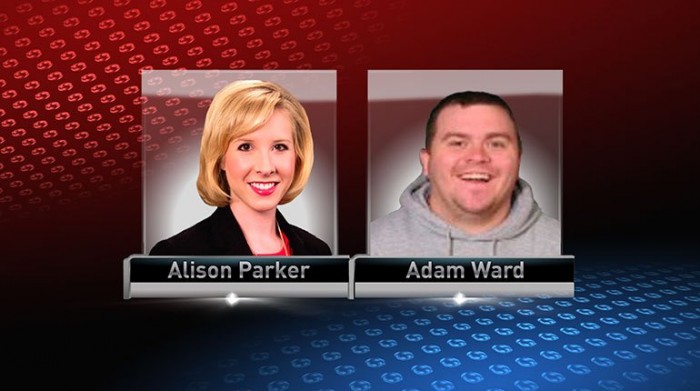As a college student I took multiple sociology courses, specifically those related to crime and how environments foster it.
While I am by no means a sociological professional today, the theories and lessons I learned stuck with me.
One that I keep coming back to in the wake of violent crimes—that seem to occur daily—is the copycat effect: the way sensational coverage of violent crimes and the perpetrators spark more of the same through imitation.
People are not going out and deciding to harm people generally, but those with mental issues, anger issues and the like are deeply influenced by the way killers before them get their names in lights.
After what happened yesterday in Virginia, where two local journalists were gunned down during a live morning report, we are hearing the same narrative we’ve been hearing time and time again in our country—angry man with mental issues shoots people and later turns the gun on himself.
We then feel sad and shocked for a while, talk about it at work and then go on about our day. Some of us are truly apathetic, some feel powerless, and some decide this is a good time to turn up the gun debate on Facebook instead of actually thinking about what they are fighting for in the first place.
But the most alarming similarity of this narrative is how we devote so much attention to the crime and the criminal, yet so little to those affected by it. In the case of the Virginia shooting, Alison Parker and Adam Ward may receive a little more attention then victims past because of their media status, but it pales in comparison to how much their killer has, and will, receive.
When these tragedies occur, the names of the killers are shared over and over and over again. We don’t have to actively seek out this information. It becomes part of the morning routine in the days and weeks following these crimes. Magazines do entire profiles of these killers: Who knew them? Where did they live? What were they like? Why would they do this?
When it comes to the victims, we have to look a little deeper and the stories are far more sparse. While this information is important for trying to stop these killings in the future, it really appears that the abundance of it is doing more harm than good.
If you asked me who killed nine innocent people in a church in Charleston two months ago, I could tell you the killer’s name right away but I would have to think about who the victims were. The same goes for the Aurora shooting, Sandy Hook, Tucson, Columbine, Boston and so many others. I am vowing to change this moving forward.
Aside from the straight facts of what happened, I have yet to look up details about the man who took Adam and Alison’s lives, and aside from what I’ve seen while scrolling Twitter, I’ve actively avoided any stories mentioning him to the best of my ability. If you asked me on the spot who he was, I could not tell you.
I read an article in The Atlantic with great detail on how we can curb the copycat effect and how that would start with the way the media reports on these crimes. It was written following the Sandy Hook murders.
You cannot count the number of instances that have taken place since on both hands and feet because there are too many.
The media’s insatiable desire for big headlines, breaking news and being first on the scene paired with the public’s craving for drama and twisted obsession with crime that doesn’t seem to effect us personally make it a perfect recipe for a pool of sensational reporting and lack of care. However, I still believe it’s not too late for change and the media can have a significant influence in fostering it. Unfortunately, most of us do not control the media. But we can control how we consume it.
These crimes are no longer unthinkable—they are happening around us every day. It’s time we stop feeding the satisfaction of the criminal, show compassion for the victims and work to bring about real change rather than just talking about how awful it is and going about our business until the next one occurs.
So from here on out, I challenge you, as a media consumer, don’t share the graphic video.
Stop seeking out the details about the killer.
Once you know the facts of the crime, turn off the TV, don’t click the link.
Don’t post the killer’s name in a status or a hashtag.
Once you know the names of the victim(s), Google them. Find out who they were. Share their stories and get them to go viral.
Even if you didn’t know them, show your social media friends and followers how much they were loved. Inundate timelines with positivity.
We know there will be another senseless crime because there will be another angry person with easy access to a weapon who sees how easy it is to become famous. But just maybe, if we don’t allow the next guy to become famous we can prevent others from thinking it’s a good idea.
There isn’t really a simple right and wrong way to solve this pandemic problem, and so many variables are involved. But I do know that actively trying to do better, some way, somehow, is better than doing nothing at all.
Relephant:
There Have Been 204 Mass Shootings in America in the Last 204 Days.
.
Author: Karen Costa
Editor: Travis May
Photo: Video Screen Shot












Read 2 comments and reply